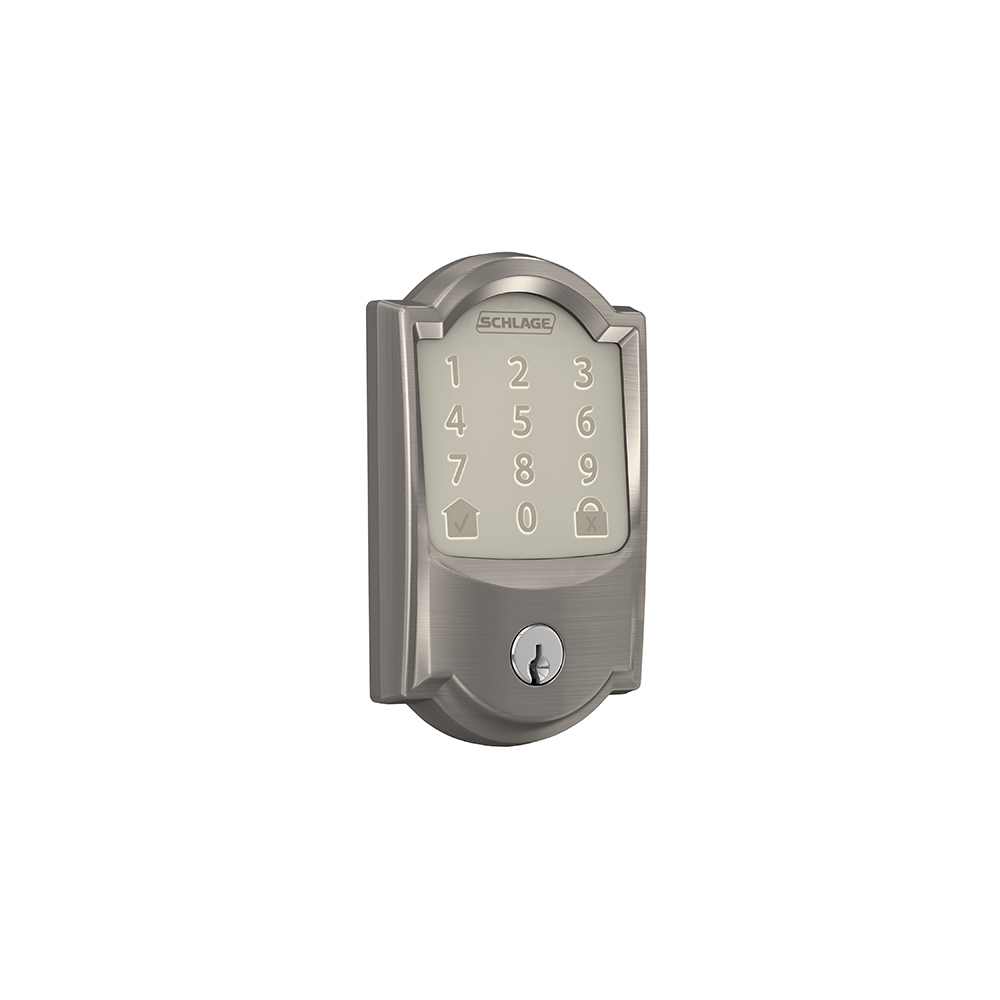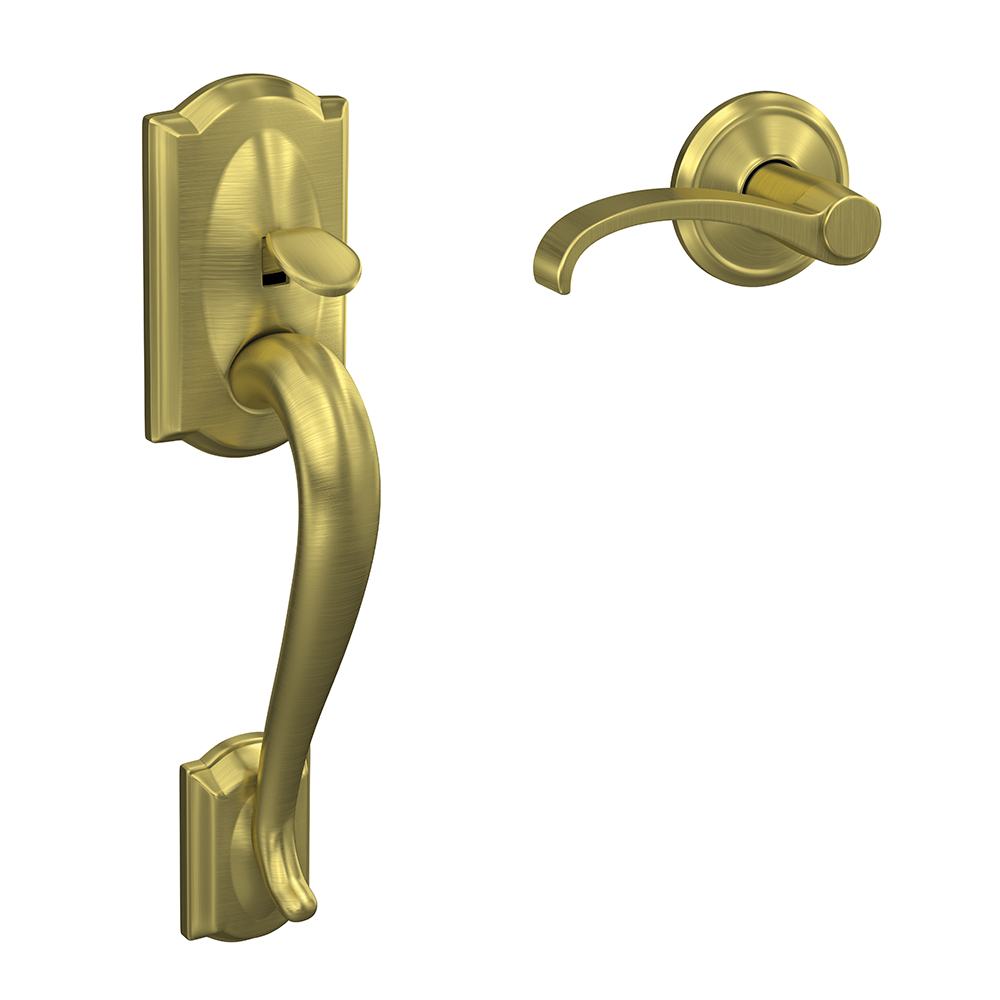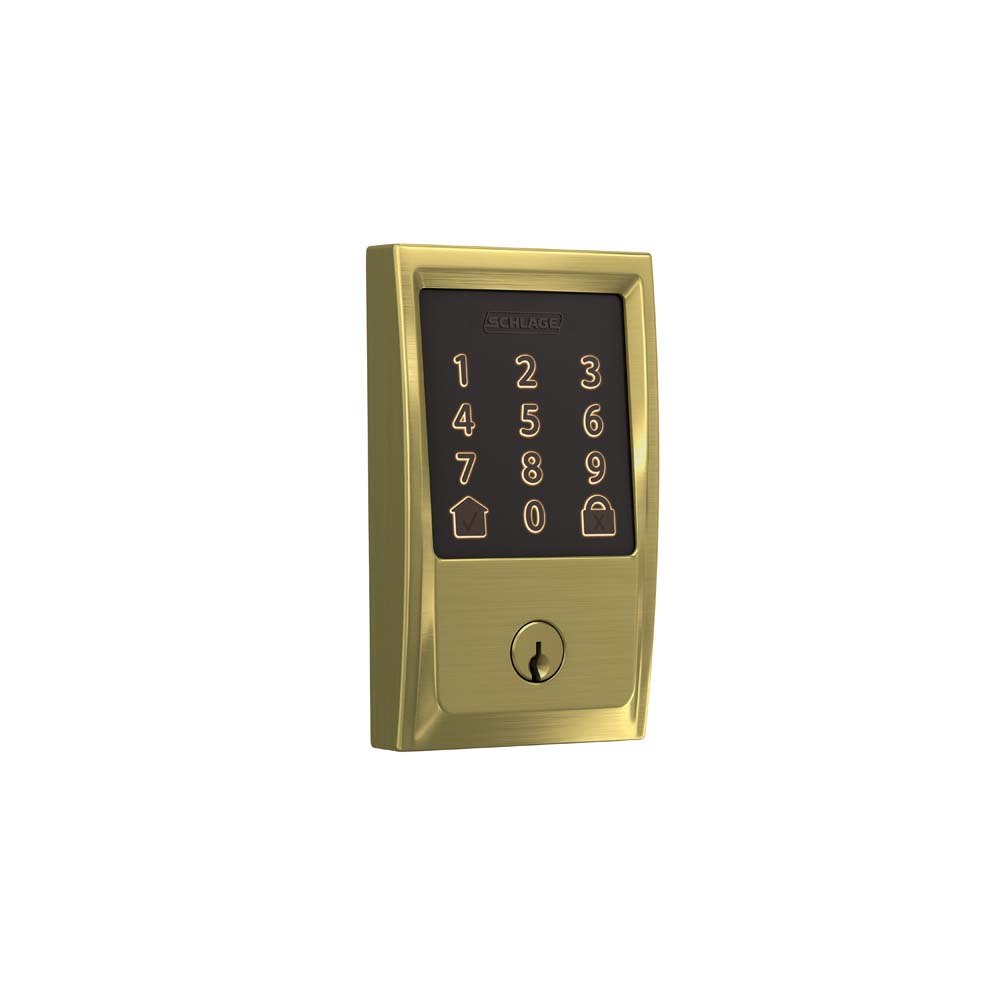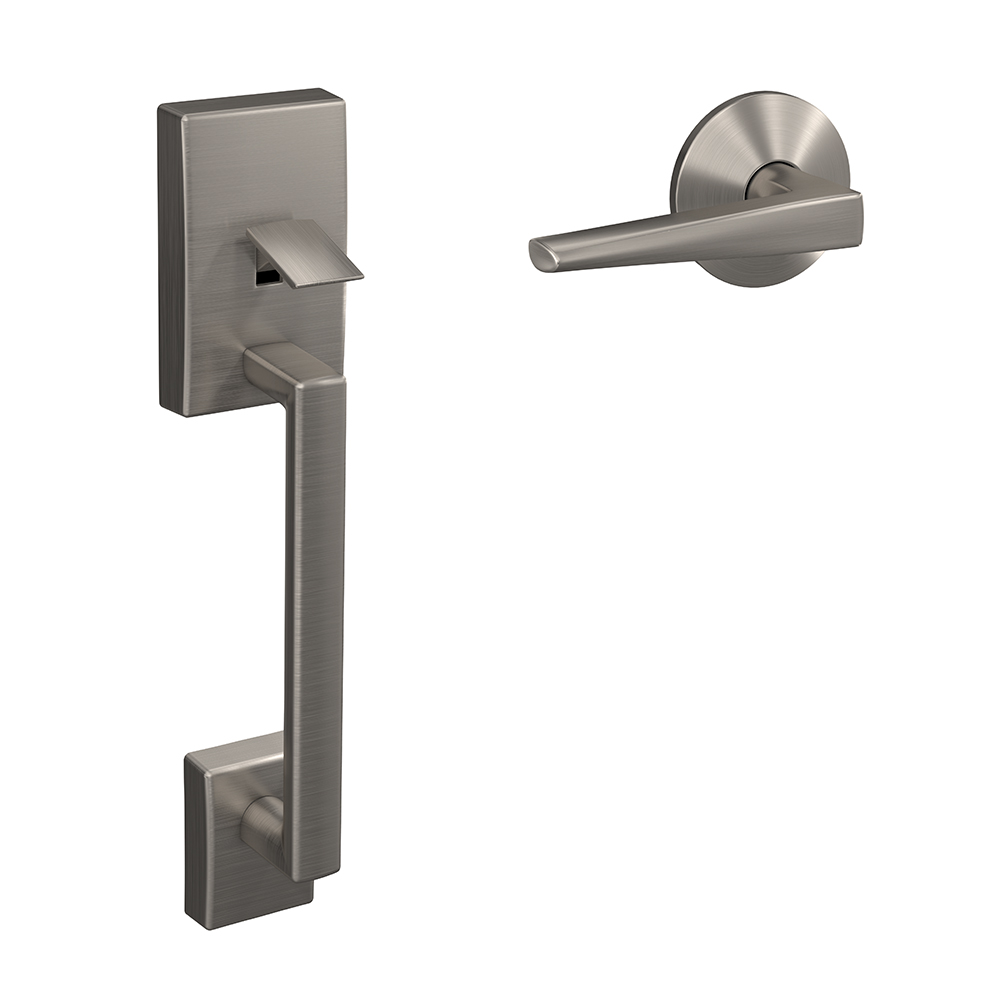10 home security lessons to teach your kids.
Friday, July 7, 2023
It’s never too early to start teaching your children some safety rules. Here are 10 ways kids can help protect themselves, their home and the rest of the family.
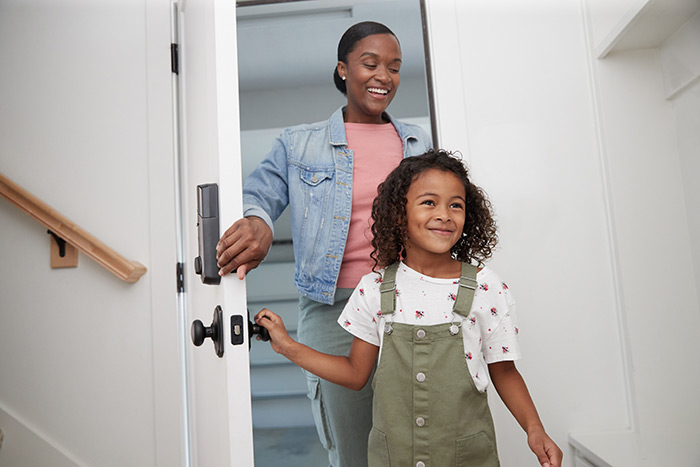
1. Always lock the doors and use alarm systems
Try to get your kids in the habit of locking the door behind them. Some kids may understand the need to lock up when they leave, but remind them that using the deadbolt even when they’re home can help keep everyone safe. The same goes for alarm or security systems. Make sure they know how to activate your system, play memory games to help them remember security codes, and involve them in the process of setting the alarm system, just like the lock, when you’re home. You may even choose to hold older children and teens responsible for securing the house behind them when they get home – this is an important pattern that can help keep them safe throughout life. And for busy families that are constantly on the go, we recommend selecting one of our smart locks for extra peace of mind. With auto lock features and the ability to check the status of your lock in the Schlage Home app, training your kids on a smart lock is a great idea.
2. Use access codes instead of keys
Even responsible kids are kids. They lose things completely or simply forget where they left them. Instead of giving them a house key that they can misplace or forget, give them their own smart lock access code. Make the code simple enough for them to remember – like Mom’s birthday – but not so obvious that someone can guess it. Finally, teach them not to share their code with anyone, even their best friend. If they forget their code or it needs to be changed for any reason, it’s easy to manage and track all your smart lock codes in the Schlage Home app.
3. Don't answer the door when home alone
If your kids are old enough to stay home alone, even if it is just for a few hours after school, give them the tools to stay safe until you return. Tell them not to answer the door when they’re home alone, especially if they aren’t expecting anyone. If a trusted family member or friend is coming to be with your kids while you’re gone, make sure they know who is coming and when to expect them. Rather than having them check from the window or pull a step stool over to help them look through the peephole, the best option is a video doorbell paired with a device such as a smart phone or monitor – this way, your child can safely see who is at the door from a distance. Installing a smart lock so that you can give trusted guests or caregivers a unique access code will take any responsibility of unlocking the door off your child. For young children, it is a good idea to teach them to never open the door, even when you are home. If there is someone at the door and they want to open it, teach them to run and find an adult to go to the door with them.
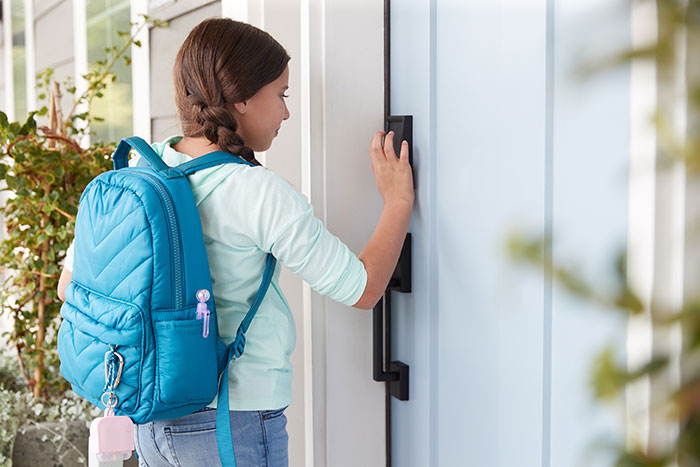
4. Keep personal information personal
Make sure your kids know what personal information shouldn’t be shared. Teach them not to answer personal questions about the house and their family’s whereabouts, especially when talking to someone they don’t know well. Helping your child learn your home address, lock and security access codes, and important phone numbers will help them stay safe, but it is important to have a conversation around when and why it would be smart to share that information vs. when it could be unsafe. The goal with these conversations is to give your child positive confidence to stay safe in a variety of scenarios.
5. Put tempting toys away
Just like leaving your garden shed unlocked or your grill sitting out can be a temptation to thieves, bikes laying on the lawn are asking to be swiped. Teach your kids to put their belongings away when they’re done playing. Even if they’re just running inside for a “quick drink,” have them park their bicycle in the garage or out of sight.
6. Be aware
A good step for staying safe, whether at home, school, or the park, is being aware of your surroundings. Teach kids to be observant. If they notice someone is following them on the way home from school or hanging around the front door, explain that the best thing to do is to go to a trusted neighbor’s or a friend’s house instead of entering an empty home alone. Give them the confidence and tools to call you or another trusted adult if they are in a situation where they don’t know what to do.

7. Use a family command center
Usually when we talk about family command centers, it’s with the goal of getting more organized. But you can also use this one-stop shop to improve your family’s security. With an updated calendar, your kids will know who is supposed to be where and when. If there’s a knock on the door and the guest is claiming to be the TV repairperson, they can check the schedule to see if that person is expected. Similarly, if you usually get home by 5:00 but have to stop at the store tonight, a note saying you’ll be a bit late can help keep them from worrying.
Clearly display emergency contact information in your command center, too. This could be phone numbers for the police and a neighbor, or alternative contact information for you, such as your cell phone, desk phone at the office and your company’s receptionist.
8. Make age appropriate accommodations
Granting older kids more independence is part of helping them grow up to be responsible young adults. Have guidelines in place so that your kids know who they can invite into the house and when. Make sure they aren’t sharing their smart lock codes with their visitors - and remember you can always set up a unique access code for a trusted best friend if the need arises.
If you have concerns about when your children’s codes are being used – did your teen make curfew? did your daughter make it home from practice? was their code entered when they should have been in school? – track it with the app’s history log. The Schlage® Home app when paired with a Schlage Encode product, for example, will provide the last 100 entries and can even be set up to send you a push notification when the code is used.
9. Talk to them about what to do in an emergency
Even when we take all the best precautions, unfortunate events can still happen. When they do, make sure your child knows how to respond. Who should they call? How, when, and why should they dial 911? When do they go into the house and when should they evacuate to a safe place? Set up a family rendezvous point so that if you get separated for any reason, you know where to safely meet and reunite. It is also important to help younger children memorize your address so that they can tell first responders where to go. Make it a routine to practice these scenarios so everyone in the family is more comfortable and confident with the steps so that they come automatically, even in high-stress situations.
10. Reward them for following the safety rules
Regardless of your child’s age, a reward system can help reinforce their good behavior. Smaller kiddos might respond well to a sticker chart. For example, earning a gold star sticker when they remember to lock the door each day could earn them an ice cream at the end of a perfect week. Remembering to check in with you when they get home from school could earn them extra screen time on the weekend. Keeping curfew could earn them a bonus on their allowance. By helping your child build a positive attitude and rhythm of home security, they will have smart life skills to keep them safe both now and into the future.
Schlage is proud to do its part in giving you greater peace of mind and the know-how to protect what matters most. We recognize that trust is earned. Backed by over a century of durability and strength, Schlage delivers premium materials and craftsmanship supported by a limited lifetime warranty and customer care to help make your home safer and your life more convenient. Browse our products and discover more home security tips at our blog.





